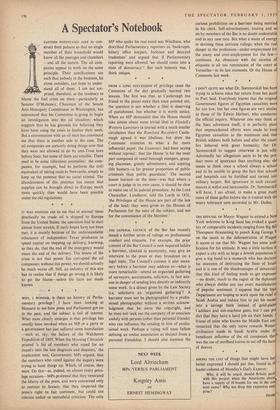FROM A LONG SUCCESSION Of privilege cases the Commons of
the day gradually learned two lessons. The first was that, as Castlereagh (no friend to the press) more than once pointed out, the question is not whether a libel is deserving of punishment, but whether it is worth notice. When an MP demanded that the House should take action about some trivial libel in Flindell's Western Luminary (a journal with a much smaller circulation than the Romford Recorder) Castle- reagh agreed it was libellous, but drew the Commons' attention to, what a far more influential paper, the Examiner, had been saying without reprisal : that the House 'is for the most part composed of venal borough mongers, grasp- ing placemen, greedy adventurers, and aspiring title hunters—a far greater proportion of public criminals than public guardians.' The second lesson learned—at the time—was that where a court is judge in its own cause, it should be slow to make use of its judicial procedure. As the Lord Chancellor, Lyndhurst, told the Lords in 1831, 'the Privileges of the House are part of the law of the land; they were given to the Houses of Parliament for the sake of the subject, and not for the convenience of the Member.'


































 Previous page
Previous page